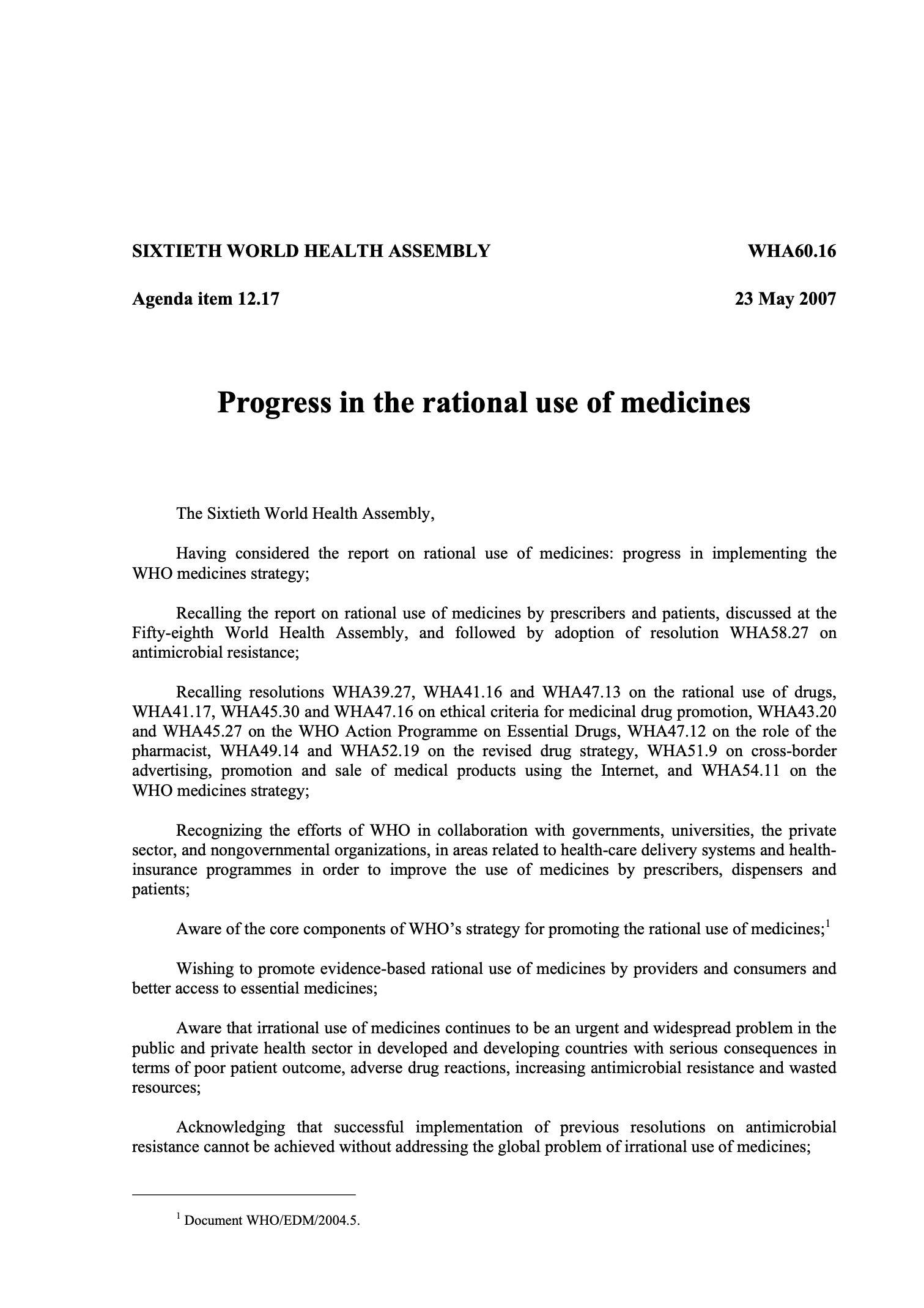2007 WHA Resolution on progress in the rational use of medicines
Analysis of precedential value
The World Health Assembly (WHA) is the decision-making body of the World Health Organization. It includes delegations from every UN member state, which gather annually to address questions about WHO’s governance, budget, and progress. Although WHA resolutions are centred on health, they engage topics ranging from military aggression to migrant rights.
Used as precedent
societal enablers
“Urges member states to develop and strengthen existing training programmes on rational use of medicines and ensure that they are taken into account in the curricula for all health professionals and medical students, including their continuing education, where appropriate, and to promote programmes of public education in rational use of medicines.” (paragraph 1(4))
universal health coverage
“Urges member states to develop and implement national policies and programmes for improving medicine use, including clinical guidelines and essential medicines lists, as appropriate, with an emphasis on multifaceted interventions targeting both the public and private health sectors, and involving providers and consumers.” (paragraph 1(6))
positive legal determinants
“Urges member states to enact new, or enforce existing, legislation to ban inaccurate, misleading or unethical promotion of medicines, to monitor promotion of medicines, and to develop and implement programmes that will provide independent, nonpromotional information about medicines.” (paragraph 1(5))
access to health products
“Requests Director General in collaboration with governments and civil society, to strengthen WHO’s technical support to Member States in their efforts to establish or strengthen, where appropriate, multidisciplinary national bodies for monitoring medicine use, and implementing national programmes for the rational use of medicines.” (paragraph 2(2))
